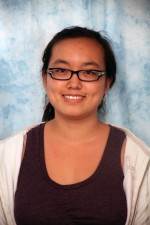
PhD Thesis Proposal
May

1:00 pm to 2:30 pm
NSH 1305
Abstract:
Algorithms for human motion understanding have a wide variety of applications, including health monitoring, performance assessment, and user interfaces. However, differences between individual styles make it difficult to achieve robust performance, particularly for individuals who were not in the training population. We believe that adapting algorithms to individual behaviors is essential for effective human motion understanding. This thesis therefore explores algorithms for personalizing a general classifier to particular test subjects given their unlabeled data or small quantities of labeled data.
Many applications, such as action or gesture recognition, contain multiple classes. For example, the REALDISP activity recognition dataset contains 33 different actions, such as walking, running, jogging, and cycling. In this thesis, we present a multi-class formulation of the Selective Transfer Machine (STM), which combines Kernel Mean Matching with a Support Vector Machine (SVM) to personalize the classifier given a test subject’s unlabeled data. We apply this algorithm to two real and four synthetic datasets, and propose several potential improvements.
In some applications, labeling events accurately in training data is difficult or impossible. Algorithms for these applications should only require weakly-labeled training data. In this thesis, we evaluate five standard, weakly-supervised algorithms on Parkinson’s Disease (PD) tremor detection. We also describe a modification that allows algorithms to take advantage of knowing the approximate amount of tremor within each segment. We find that these modified algorithms show little decrease in performance as the length of the training time segments increases to ten minutes. We propose to develop a personalized, weakly-supervised algorithm and apply it to PD tremor detection in wrist-worn accelerometer data collected in patients’ homes.
In other applications, such as when measuring disease severity or surgeon expertise, labels come from a continuous spectrum. In these cases, a classification algorithm, which assumes discrete classes, may not be the best approach. Algorithms that attempt to fit a function to the data are more appropriate. We propose to apply personalization to modeling surgeon learning curves. We also plan to use personalized regression to predict surgeon expertise on data collected from the da Vinci surgical robot.
In summary, this thesis will explore the application of personalization to human activity and surgical gesture recognition, PD tremor detection, surgeon learning curve modeling, and surgical expertise prediction. In doing so, we will develop personalized algorithms in the context of multi-class classification, weakly-supervised classification, and function modeling.
Thesis Committee Members:
Fernando De la Torre, Co-chair
Jessica Hodgins, Co-Chair
Artur Dubrawski
Anthony Jarc, Intuitive Surgical, Inc.